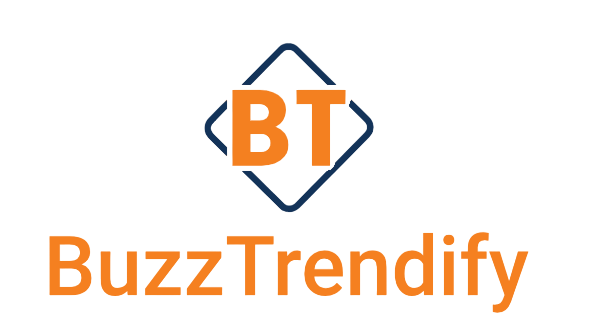Not long ago, a friend shared his struggles with saving for retirement. He felt overwhelmed by taxes on his investment gains. As we talked over coffee, I introduced him to tax-free investment portfolios.
This idea lit a spark of hope for him. Imagine growing your savings without taxes! It was a game-changer. I realized how important tax-free investing is for anyone wanting to grow their money.
Let’s explore how to use tax-free accounts like Roth IRAs and Health Savings Accounts. They can make your money work for you.
Key Takeaways
- A tax-free investment portfolio can significantly enhance your financial growth.
- Utilizing accounts like Roth IRAs allows you to invest without tax burdens.
- Understanding tax-free investing strategies can help maximize earnings.
- Tax-free portfolios provide flexibility and financial freedom.
- Early investment in tax-free options can lead to long-term wealth accumulation.
What is a Tax-Free Investment Portfolio?
A tax-free investment portfolio is a mix of accounts and investments that help grow your wealth without taxes. These financial tools let you build up your money over time while keeping taxes low. Knowing about tax-free investment portfolios can help you make smart money choices.
Definition and Overview
A tax-free investment portfolio is made up of special accounts that let you invest without paying taxes on your earnings. You can find these in Roth IRAs, Health Savings Accounts (HSAs), and 529 College Savings Plans. Each one has its own purpose but they all aim to grow your money tax-free, under certain conditions.
Key Features of a Tax-Free Portfolio
What makes tax-free investment accounts special is their appeal to many investors:
- Roth IRAs: These accounts grow tax-free and let you withdraw money tax-free after you retire.
- HSAs: Great for medical bills, they offer tax-free contributions, growth, and withdrawals.
- 529 Plans: For education costs, these accounts grow tax-free for qualified education expenses.
Knowing the special traits of these tax-free investment options can help you create a plan that fits your financial goals.
| Account Type | Tax Benefits | Withdrawal Conditions |
|---|---|---|
| Roth IRA | Tax-free growth and withdrawals in retirement | After age 59½ and account held for 5 years |
| Health Savings Account | Triple tax benefits: contributions, growth, withdrawals | No restrictions on withdrawals for qualified medical expenses |
| 529 College Savings Plan | Tax-free growth when used for education | Must be used for qualified educational expenses |
Benefits of a Tax-Free Investment Portfolio
Investing without taxes has many benefits. Tax-free strategies help your money grow faster. This means you can build wealth quicker.
Wealth Accumulation
Taxes can slow down your wealth growth. But, tax-free investments let your money grow faster. This leads to more assets over time, improving your financial health.
Without taxes, your investments grow better. This means a stronger financial future for you.
Financial Freedom
Imagine not worrying about taxes when you take money out. This makes managing your money easier, like in retirement. Tax-free strategies give you peace of mind.
You can plan your withdrawals based on your needs, not taxes. This freedom is priceless.
Long-Term Security
Long-term, tax-free investments are key to financial security. They grow without taxes, creating a strong base for your future. This security lets you focus on growing your wealth.
With tax-free assets, you can ensure a stable financial future. This is great for you and your family.
Types of Tax-Free Investment Options
Exploring different tax-free investment options is key to a strong financial base. Each option has its own benefits, fitting various financial goals. Let’s look at some popular ones.
Roth IRA
A Roth IRA is a great choice for tax-free growth. You put in money that’s already been taxed. This lets your investment grow without taxes for years. When you take money out in retirement, it’s tax-free too. It’s perfect for those who think their taxes will be higher later.
Health Savings Account (HSA)
A Health Savings Account (HSA) is special among tax-free investments. You can deduct contributions if you have a high-deductible health plan. Your earnings grow tax-free. And, withdrawals for medical expenses are tax-free. It’s great for managing health costs and growing your money tax-free.
529 College Savings Plan
The 529 College Savings Plan is for education costs. It lets you save for college expenses tax-free. Contributions might get you state tax deductions. The investment grows tax-free for qualified education expenses. It’s a big help for families saving for their kids’ education.
How to Create a Tax-Free Investment Portfolio
To create a tax-free investment portfolio, you need to plan carefully. You must understand the tax-free investment options available. Start by aligning your financial goals with your current tax situation. Here’s a simple guide to help you.
Step-by-Step Guide
First, figure out your financial goals. Do you want to save for retirement, education, or healthcare? Knowing your goals helps you pick the best tax-free investment strategies. Next, assess your current taxes and predict your future taxes based on your retirement income.
Choosing the Right Accounts
Choosing the right accounts is key for tax-free investing. Consider a Roth IRA for retirement savings, as withdrawals are tax-free. An HSA is great for medical expenses, with a triple tax advantage. For education savings, 529 College Savings Plans offer tax-free growth and help with tuition costs.
Diversification Strategies
Diversifying your investments is important. Spread your assets across stocks, bonds, and real estate in your tax-free accounts. This approach helps manage risks and can increase returns. It also helps you stay stable during economic ups and downs.
Common Misconceptions About Tax-Free Investments
Many people misunderstand tax-free investments. These wrong ideas can lead to bad financial choices and missed chances. It’s key to know the truth about these investments to get the most out of them. Understanding the rules and limits of different tax-free accounts is essential.
Myth vs. Reality
Some think tax-free investments are completely safe. But, these accounts have rules that can change how you use your money. Things like how much you can put in and income limits, like with Roth IRAs, affect your plans. It’s smart to know these limits and plan your investments wisely.
Understanding Tax Implications
Every tax-free investment has its own tax rules. Knowing these differences helps you make better choices. For example, using Health Savings Account funds for medical bills keeps them tax-free. It’s important to understand these details to match your goals with the right investment.
| Myth | Reality |
|---|---|
| All tax free investments are risk-free | They come with specific rules and limitations |
| Tax-free means no rules | Each account has its own eligibility requirements |
| Once invested, there are no concerns | Monitoring contributions and withdrawals is necessary |
Tax-Free Investment Portfolio for Retirement
Thinking about your financial future? A tax-free investment portfolio is key for a comfy retirement. Starting early lets your money grow faster. It also makes your financial future more secure. With tax-free strategies, your money keeps working for you, without taxes in retirement.
Benefits of Early Investment
Investing early has many perks, like for retirement savings. Here are some main benefits:
- Compound Growth: Early investments grow a lot over time, boosting your retirement fund.
- Lower Financial Stress: Saving early means less pressure to save big later.
- Maximized Tax-Free Growth: Tax-free accounts grow your money faster, without taxes.
Retirement Account Options
There are many retirement accounts that fit tax-free investment strategies. These accounts help build a strong tax-free portfolio:
| Account Type | Tax Benefits | Contribution Limits |
|---|---|---|
| Roth IRA | Tax-free withdrawals in retirement | $6,500/year (under 50), $7,500 (50 and older) |
| Health Savings Account (HSA) | Tax-free withdrawals for medical expenses | $3,850 (individual), $7,750 (family) |
| 529 College Savings Plan | Tax-free withdrawals for educational expenses | No specific limits; depends on state |
Strategies for Maximizing Tax-Free Investments
Effective strategies can greatly improve your tax-free investing. Dollar-cost averaging and rebalancing your portfolio are key. These methods help you manage tax-free investment funds and achieve your financial goals.
Dollar-Cost Averaging
This strategy means investing a set amount regularly, no matter the market. You buy more shares when prices are low and fewer when they’re high. This approach helps you handle market ups and downs and can lead to better returns over time.
Rebalancing Your Portfolio
Keeping your investment mix right is important as your money grows. Rebalancing means adjusting your portfolio to match your target. This might mean moving money between tax-free accounts to stay on track with your goals. Regular rebalancing keeps your investments safe and boosts your tax-free investing strategy.
| Strategy | Benefits | Considerations |
|---|---|---|
| Dollar-Cost Averaging | Reduces market timing risk, promotes disciplined investing | Works best in volatile markets |
| Rebalancing Your Portfolio | Maintains desired risk level, enhances returns | May incur transaction costs, requires ongoing assessment |
Risks Associated with Tax-Free Investments
Managing a tax-free investment portfolio comes with risks. The benefits are tempting, but knowing the risks is key. This knowledge helps you prepare and make smart investment choices.
Market Fluctuations
Investments face market ups and downs, even with tax perks. The value of your assets can change due to economic factors. Keeping up with market trends and adjusting your strategy can help avoid big losses.
Account Contribution Limits
Each tax-free investment account has its own contribution limits. Going over these limits can lead to tax penalties. It’s important to watch these limits to keep your portfolio growing without trouble.
Building a Tax-Free Investment Portfolio for Families
Creating a tax-free investment portfolio is key for families to secure their financial future. Parents should look into different options. They should also think about their children’s education and long-term goals. The right mix of accounts can offer tax benefits now and growth later.
Considerations for Parents
When planning for your family’s future, keep these points in mind:
- Assess your family’s financial goals: Think about what you want to achieve, like buying a home, funding education, or retirement.
- Explore the best tax free investment options: Invest in 529 plans for education savings. They grow tax-free for qualifying educational expenses.
- Utilize Roth IRAs: These accounts help you save for retirement. They may also let you pass on tax-free wealth to your children if planned right.
- Diversify your investments: Spread your investments across different accounts. This can make your portfolio more secure and grow faster.
Investing in Education
Investing in education can benefit your family for years. Here are some tax free investment strategies to save:
- Start early with 529 plans: The sooner you start, the more time your investments have to grow tax-free.
- Take advantage of tax deductions: Many states offer tax deductions for 529 account contributions.
- Regular contributions: Set up automatic contributions to keep your education savings on track.
- Monitor and adjust: Regularly check your portfolio to make sure it matches your changing goals and market conditions.
Tax-Free Investments and Estate Planning
Estate planning is more than just giving out assets. It’s also about using tax-free investments. These can greatly improve how you leave a legacy for your family. By adding Roth IRAs to your plan, your heirs won’t face tax problems, making wealth transfer smoother.
Leaving a Lasting Legacy
Think about the effect of tax-free investments in your estate plan. They are great tools for leaving a lasting legacy. These accounts grow tax-free and can pass to heirs without big tax hits. Your family can fully enjoy the fruits of your labor and smart investments.
Strategies for Beneficiaries
It’s key to have good strategies for your beneficiaries. Here are some tips:
- Choose specific beneficiaries for your tax-free investments to make transfers easier.
- Teach your heirs about managing inherited accounts, including tax rules and limits.
- Encourage heirs to keep the investments for long-term growth.
Good planning ensures your legacy not only stays but also grows for future generations.
The Future of Tax-Free Investment Portfolios
Looking into tax-free investment options means keeping up with new trends and law changes. As we move forward, changes will likely impact how we invest. Knowing these trends helps us prepare and find better ways to manage our money.
Trends and Predictions
Experts think we’ll see more tax-free investment chances, thanks to younger people wanting financial freedom. More people will learn about tax-free accounts, improving their financial knowledge. I believe we’ll see new products with tax perks for the young.
Legislative Changes to Watch
Changes in laws about tax-free accounts often tie to big economic policies. It’s key to watch for updates that might change these opportunities. New tax laws could bring more tax-free options, making investing easier for more people. Keeping in touch with financial experts will help me adjust my strategy to these changes.
Resources for Your Tax-Free Investment Journey
Building a successful tax-free investment portfolio needs the right tools. Online tools and calculators are key for checking tax savings and investment growth. They help understand complex tax situations, guiding you through your finances.
Many platforms let you input different details. This gives you personalized advice that’s very helpful.
Books on tax-free investing are also valuable. “The Bogleheads’ Guide to Investing” is a great example. It offers useful tips. Websites from trusted financial experts keep you updated on tax laws and investment choices.
These resources help you make smart, informed decisions. They ensure you’re always ahead in growing your tax-free portfolio. Each piece of information helps build a strong financial future, making learning rewarding.
FAQ
What is a tax-free investment portfolio?
A tax-free investment portfolio lets you grow your money without paying taxes. It includes things like Roth IRAs, Health Savings Accounts, and 529 College Savings Plans.
How can I benefit from tax-free investing?
Investing tax-free helps you grow your wealth faster. You also get financial freedom and long-term security. This is because your investments grow without taxes.
What are the best tax-free investment options available?
Top tax-free options include Roth IRAs for retirement, Health Savings Accounts for medical costs, and 529 Plans for college. Each has its own benefits for different goals.
How do I create a tax-free investment portfolio?
First, figure out your financial goals. Then, pick the right tax-free accounts, like Roth IRAs. Mix different investments to reduce risks and increase returns.
What are common misconceptions about tax-free investments?
Some think “tax-free” means no rules. But, tax-free accounts have rules and limits. Knowing these is key to avoiding mistakes.
Why is a tax-free investment portfolio important for retirement?
A tax-free portfolio is key for retirement. It lets your money grow without taxes. In retirement, you can withdraw from accounts like Roth IRAs without paying taxes, ensuring a steady income.
What strategies can I use to maximize tax-free investments?
Use dollar-cost averaging to invest a fixed amount regularly. Also, rebalance your portfolio to keep the right mix of investments over time.
Are there risks associated with tax-free investments?
Yes, market ups and downs can affect your investments. Also, going over contribution limits can lead to taxes. Stay alert and adjust your plans as needed.
How can families benefit from a tax-free investment portfolio?
Families can save for education with 529 Plans and for retirement with Roth IRAs. This approach can secure a financially stable future for everyone.
How do tax-free investments fit into estate planning?
Investments without taxes are great for estate planning. They can be passed on to heirs without taxes. Using the right beneficiary strategies ensures the assets are managed well.
What should I know about the future of tax-free investment portfolios?
Keep up with trends and changes in tax laws. This helps you adjust your strategies to stay ahead and not miss out on opportunities.
What resources are available for learning about tax-free investing?
Use online calculators to see tax savings. Read books on tax-free investing for tips. Also, check websites from financial experts for the latest on tax laws and investments.





